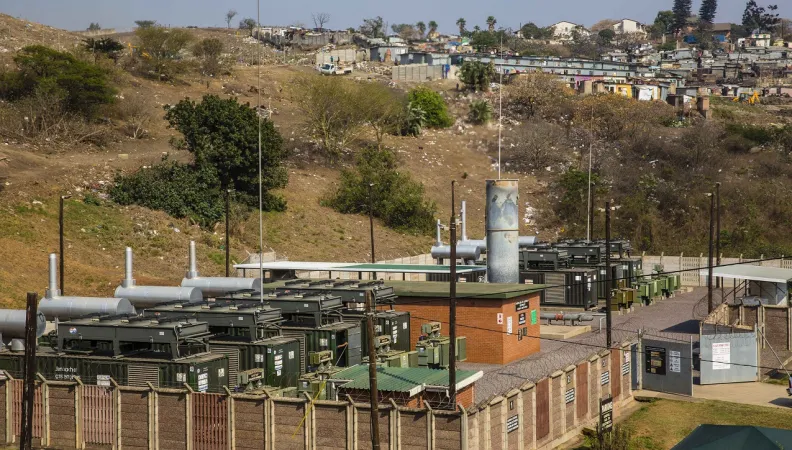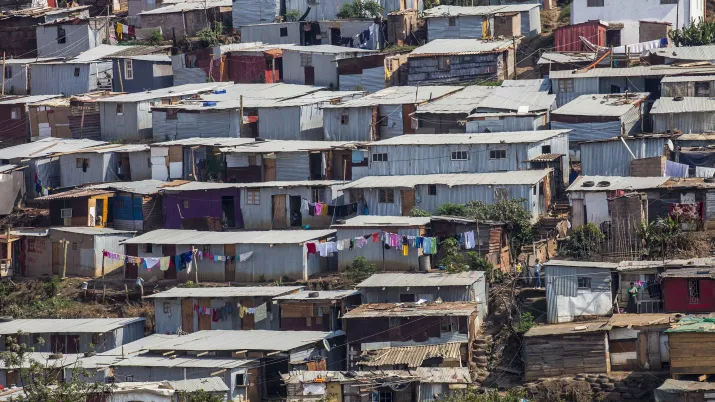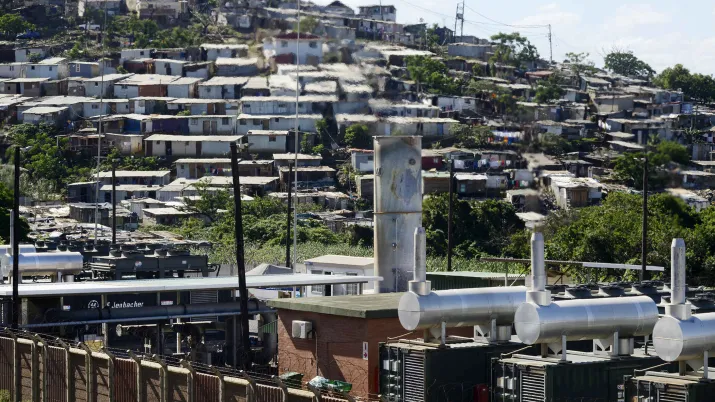Share the page
Social protection and just transition in South Africa

-
Project start date
-
2024Status
Completed
-
Project end date
-
2025
-
AFD financing amount
-
119000
-
Country and region
-
Partners
-
National Treasury (South Africa), Development Policy Research Unit (DPRU) - University of Cape Town, The Presidency of the Republic of South Africa
-
Research program
How can the South African government prepare the transition of workers from the coal sector to a low-carbon economy? What is the socio-demographic and spatial profile of workers in the coal value chain? What are the social protection options for preventing the potential rise in unemployment and inequality caused by the just transition? The Extension of the EU-AFD Research Facility on Inequalities is exploring these questions in partnership with the Development Policy Research Unit at the University of Cape Town.
Context
South Africa remains one of the most unequal countries in the world. The country’s high-income inequality is driven primarily by extreme differentials in the labour market, where over 30% of the labour force is unemployed and earns zero income (Leibbrandt et al., 2010; StatsSA, 2024). Reducing unemployment is therefore at the heart of South Africa’s social and economic challenges, and is key to lower the level of inequality.
Coal is an important industry in South Africa and is central in the just transition. Rough estimates of total employment in the coal value chain alone are close to 200,000 – roughly 1.2% of total employment – while the contribution to output sits at 5.4% of growth domestic product (Makgetla et al., 2021). Moreover, the coal industry is highly geographically concentrated and underpins a large share of local and regional economic activity in certain areas, particularly localities within the Mpumalanga province.
In this regard, the potential negative employment impacts of a transition away from coal, and toward low carbon energy production, presents a significant socio-economic challenge for a country still dealing with the vestiges of apartheid. It is thus critical that the risks associated with these potential adverse employment effects are managed to ensure that inequality is not worsened by an unplanned transition.
This project is part of the Extension of the EU-AFD Research Facility on Inequalities. Coordinated by AFD and financed by the European Commission, the Extension of the Facility will contribute to the development of public policies aimed at reducing inequalities in four countries: South Africa, Mexico, Colombia and Indonesia over the period 2021-2025.
Find out more about the Extension in South Africa
This work is also part of AFD's dialogue with the South African authorities on the just transition and the identification of reforms to be implemented to ensure an inclusive transition.
Objectives
There is currently a limited understanding of how many workers are likely to be affected by a transition away from coal; how these workers vary by age, skill, or income level; what an effective social protection policy package for such workers would involve; how much a given basket of policies is likely to cost; and the financing options available. Yet, these are crucial elements in designing and implementing policies that limit the negative social and economic effects of transition and prevent potential increases in unemployment and inequality.
This project aims to make two primary high-level contributions:
- First, it will count and profile existing workers in coal and related industries using reliable, spatially sensitive microdata. This includes an analysis of employment, wages, and wage inequality;
- Second, it will propose a basket of social protection policies tailored to the identified worker profiles, with attendant modelled cost estimates, and potential financing options. This includes a focus on the wage inequality implications of various policy scenarios that highlight the importance of a just transition in South Africa.
Method
The research project has four main components that will encompass the following analytical areas:
- The utilisation of tax data to accurately identify at-risk employees in coal mining, coal-based electricity generation, and coal-adjacent industries, locating them spatially across the country. This will provide a reliable estimate of the number of direct and indirect coal industry workers at risk of being adversely affected in a shift away from coal.
- The production of detailed gender, age, and earnings profiles of the identified at-risk workers in the sector. This exercise is anchored around worker earnings and will be used to identify sub-groups, or cohorts, of workers who will require different forms of protection and support based on their existing skills, earnings, and age profile. The earnings data will in addition be utilised to examine inequality dynamics within the coal value chain and between coal value chain workers and those employed in mining generally and in the formal economy as a whole.
- Using these worker profiles to provide a framework of suitable policy options for the different cohorts in order to develop a comprehensive social protection response. Policy options would include individually assigned combinations of interventions such as early retirement packages, grants, and skills development. Furthermore, the study will provide a comprehensive overview of the various social protection policies available in South Africa and determine whether they could apply to affected workers.
- Examination of scenarios for declining coal employment and model a series of associate cost estimates for the various policy response options. This includes modelling possible policy scenarios over the full-time horizon of existing employees. The result is a costed picture of the implications of the just transition policy for South Africa’s coal sector, that includes a discussion of potential public finance options. The findings will also shed light on potential inequality outcomes to emerge from different just transition policy scenarios.
Research findings
The project resulted in two research papers, available below:
- Counting and Profiling Coal Mining Industry Jobs (July 2025):
Subcontracted employment within the coal mining industry has grown, now constituting nearly half of all jobs. The workforce is relatively young, requiring transition policies that prioritize skills development and job placement. Men comprise the bulk share of employees in the coal mining industry, although female participation has risen over time. Coal mining industry jobs are relatively well paid, with the average coal miner wage surpassing that of the average formal sector worker, thus making income support for displaced workers financially burdensome. Wage inequality within the coal mining industry is lower than wage inequality within the broader formal sector economy. Thus, should coal miners transition from jobs in the relatively low inequality coal mining industry, to jobs in high inequality industries, then it is possible that overall inequality will rise.
- Ameliorating the Consequences of Coal Job Destruction - A Just Transition Policy Matrix Approach (October 2025)
Ensuring a just energy transition in South Africa requires supporting workers to absorb the negative shocks of structural change. Central to this is the design of a comprehensive social protection package for coal mining workers. This paper proposes the “just transition policy matrix” approach, which uses micro data to tailor policy responses to the needs of different groups of at-risk workers.
Temporary income support dominates expenditure in all scenarios, followed by education and training. Existing policies can be leveraged to support displaced workers. Nonetheless, when applied to coal workers, funding gaps remain, requiring additional fiscal resources and implying a substantial rise in social protection spending.
For further reading
Contact
-
Anda DAVID
Economist, scientific coordinator of the EU-AFD Research Facility on Inequalities




